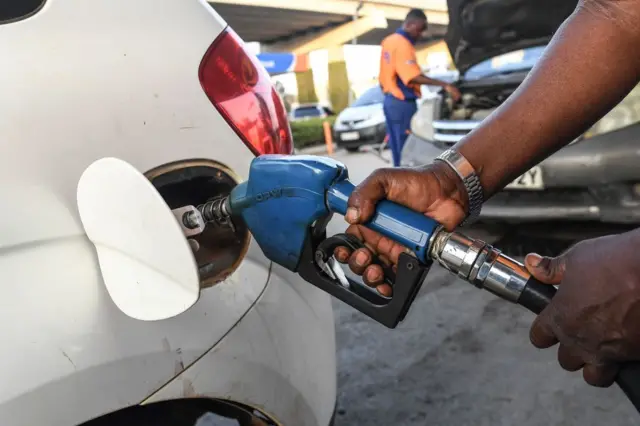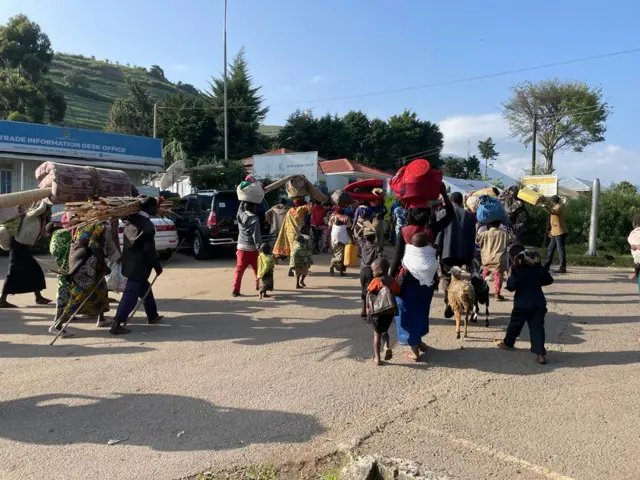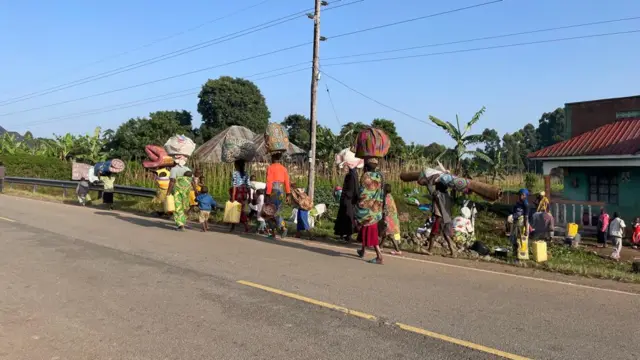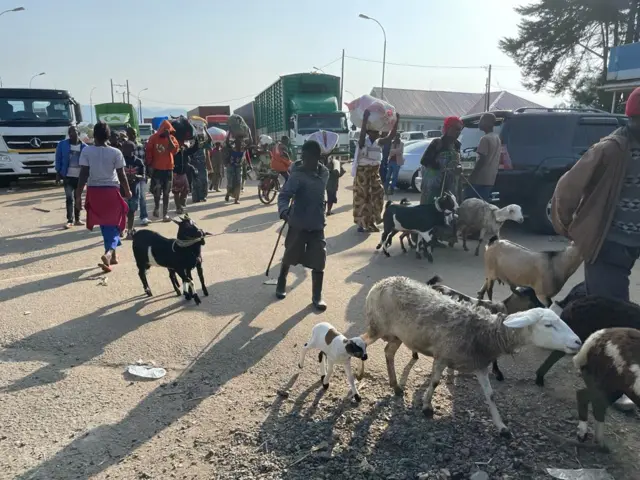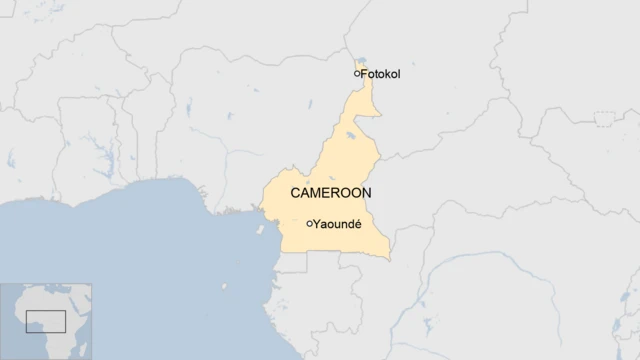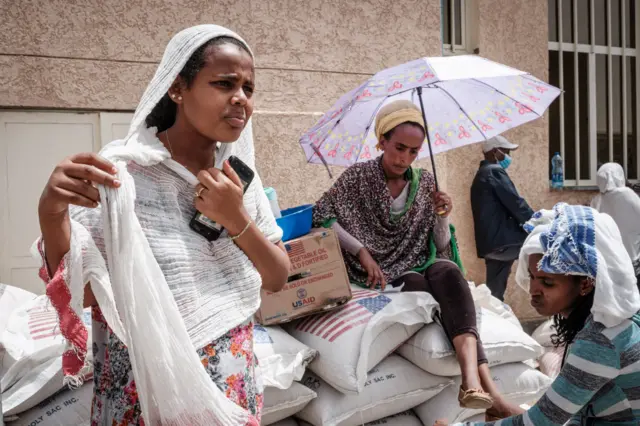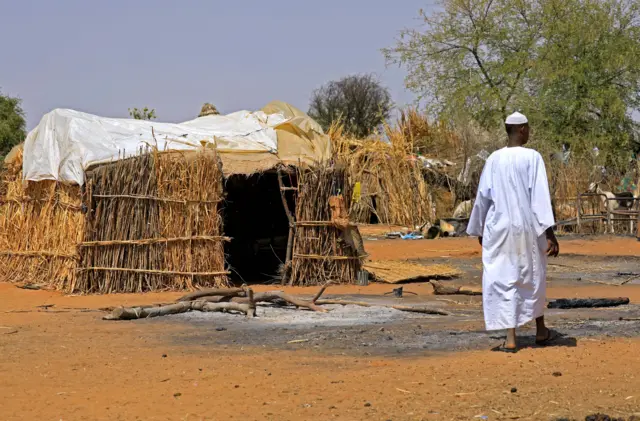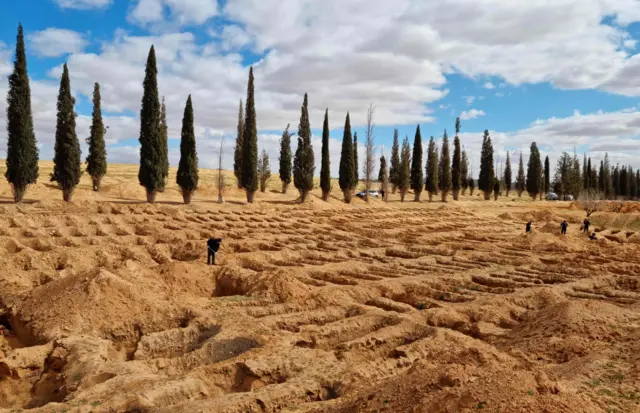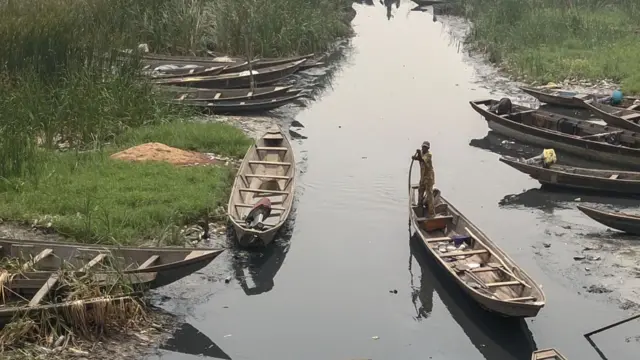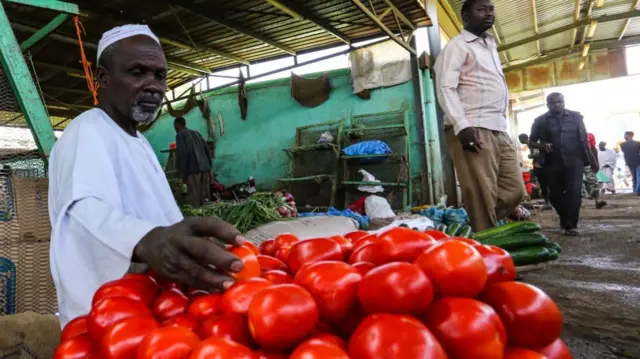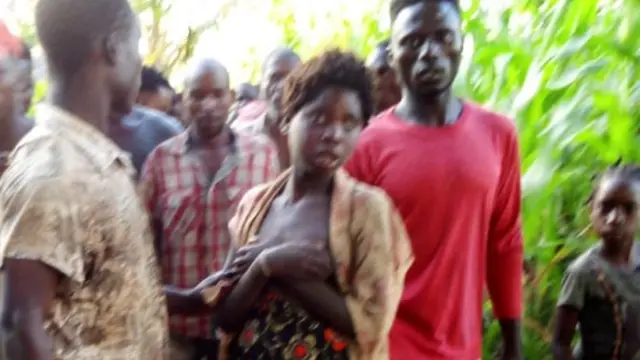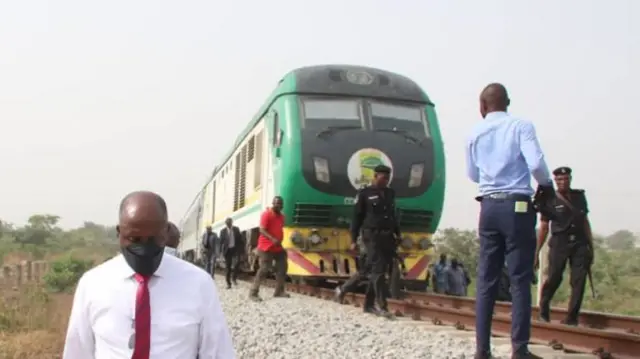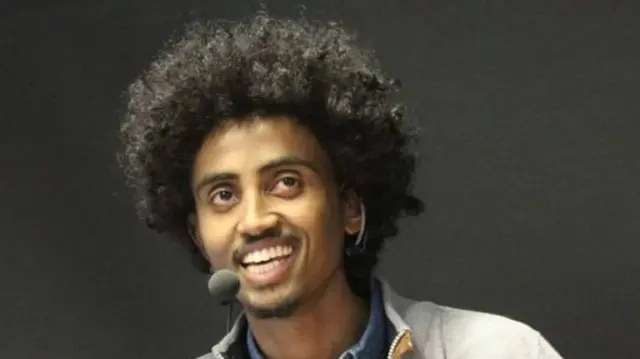Sudan's anti-coup protests: 50 suffer gunshot woundspublished at 14:01 BST 1 April 2022
A 23-year man was shot dead and more than 50 others suffered gunshot wounds during Thursday's anti-coup protests in Sudan, activists and medics say.
Eyewitnesses said the security forces used excessive force to disperse the protesters in the capital, Khartoum.
The unusually high tally of gunshot injuries is understood to be linked to the increased use by the security forces of shotguns, which fire shells that contain multiple pellets, locally known as "suk-suk".
Removing these projectiles can require complex surgery, local medical groups like Hadhreen Organisation warn.
During Thursday's clashes, another activist was reportedly stabbed by riot police.
Tweeters have been sharing an image of an officer from a militarised police unit deployed during the protest wielding a machete:
Allow X content?
This article contains content provided by X. We ask for your permission before anything is loaded, as they may be using cookies and other technologies. You may want to read X’s cookie policy, external and privacy policy, external before accepting. To view this content choose ‘accept and continue’.


